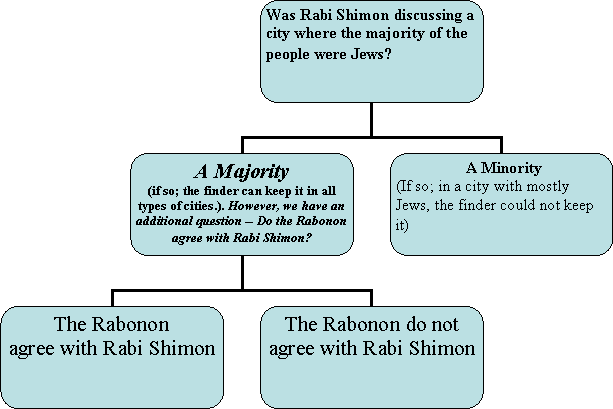|
The parenting forum is dedicated this year
to the memory of Mrs. Gertrude Walder a"h
Gemara Challenges
Dear Rabbi Horowitz:
Our oldest son is currently in 7th grade and he is having a very challenging time with his kodesh studies. He did ok with chumash and mishna, but he is finding gemara very difficult. He schlepped his way through 5th and 6th grade, but he is falling apart this year. He blames it on gemara and says that he hates learning it.
I give a daf shiur in shul and really enjoy learning with him, but things are getting quite stressful when we need to gemara homework.
Any ideas? I’m getting desperate.
Yitzchak
Rabbi Horowitz Responds
I guess the first place to start would be to reflect upon the attributes of gemara learning that differ from chumash and mishna, since you wrote that his challenges are unique to this limud.
If you think about it, when boys transition to gemara, they simultaneously:
- Begin to read without nekudos (punctuation)
- Learn a new language (Aramaic), and
- Use deductive reasoning to follow the track of the gemorah.
Therefore, it would stand to reason that as you problem-solve and do your best to help your son, analyze things along these three areas and see if you can identify and remediate the problem(s).
1) Nekudos: This is an easy one to identify and address. I suggest that you get your son a gemara with nekudos and see if it makes the reading more manageable. Reb Tuvia Rotberg (of Tuvia’s Seforim in Monsey, 845-426-0824) printed several gemaras with nekudos and selected those mesechtos that are commonly used in yeshivos for publication. If you see that he is more comfortable reading from a gemara that has nekudos, I suggest that he use it at home for homework and perhaps ask his rebbi in yeshiva if he can use it there as well.
2) The entire issue of learning and teaching Aramaic – and the importance of investing the time to do it properly – is something I’ve been writing about for some time. (See It Doesn't Start in Tenth Grade and Training Wheels). Unfortunately parental, communal and social pressure virtually forces the hands of school principals to rush through this most critical stage in the development of gemara skills. That said, I suggest that you do your best to teach your son the most common shoroshim in Aramaic, along with the prefix and suffix that are used to conjugate the words. If you are a bit more creative (if not, ask your wife to help youJ), you may wish to create flash cards with the most common Aramaic words and practice with your son.
Rabbi Aron Spivak, the very talented 5th grade rebbi in Darchei Noam, where I serve as Dean, created a list of 150 common Aramaic words and phrases that our talmidim learn and study in his class before they begin gemara. With his permission, I will post it on my website early next week, along with a final exam that he made to test the children’s mastery of the words. Please check my website next week and feel free to download the files for your son’s use.
3) Many children (and adults) find following the deductive reasoning and complicated logical streams of the gemara very challenging. During the 15 years that I taught 8th grade, I found this to be the greatest barrier to talmidim’s mastery of gemara. One technique that I found particularly helpful was to teach my talmidim how to make a logical flowchart like the one below, which maps out the flow of the gemarah. (for Bava Metziah 24a) Once your child learns how to do this, learning gemara ought to be much easier for him.
© 2007, Rabbi Yakov Horowitz, all rights reserved
 |